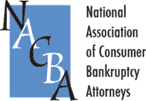
By Aleksandra Todorova January 22, 2007
THE DECISION OF whether to file for bankruptcy protection is not an easy one. Among the numerous concerns, one that is typically front and center is the worry that your credit rating will be so damaged that securing a loan — even at a lousy rate — will be darn near impossible.
But here’s some surprising news: In many cases, the damage done to one’s credit score isn’t nearly as bad as expected. Over the long run, obtaining a score high enough to make you eligible for very competitive rates isn’t out of the question.
The Agenda: Debt
Part of the reason why your score isn’t likely to suffer all that much is that most folks seriously struggling with debt aren’t exactly maintaining a top-notch score to begin with. “In virtually every instance, the consumer will already have repayment problems such as late payments, very high balances, charged-off accounts or collection accounts,” says Rod Griffin, a spokesman for Experian, one of the three major credit bureaus.
In light of this, some consumers may even see a slight boost in their credit scores after filing bankruptcy, according to John Ulzheimer, president of Credit.com Educational Services, a consumer credit education group. Why? To start with, your credit report is largely wiped clean when you declare bankruptcy. Your high balances are removed as are any late payments or records of unpaid debts. Instead, the accounts included in the bankruptcy will be marked as “Included in Chapter 7 Bankruptcy” or “Included in Chapter 13 Wage Earner Plan,” depending on which type of bankruptcy you filed. Both types of bankruptcy affect your credit score in the same way, according to Ulzheimer. Granted, you aren’t likely to see a big jump — but if you’ve just been scraping by, your score isn’t likely to fall much further.
That said, a bankruptcy could help your score over the long term, as well. Here’s why: When calculating scores, the formulas developed by Fair Isaac (the company that calculates the most widely used credit score, known as the FICO score) are set up to grade someone’s credit standing as compared with that of consumers in a similar financial position. To do that, Fair Isaac divides consumers into 10 groups, using what it calls “score cards.” It then ranks the consumers in each group based on the others in the group. One of these score cards is bankruptcy filers. (For competitive reasons, Fair Isaac doesn’t release what constitutes all 10 groups.)
In other words, when you file bankruptcy your score is determined based on how you do compared with other bankruptcy filers, explains Fair Isaac spokesman Craig Watts. The reason? Fair Isaac has found this to predict credit risk better. “It’s a much fairer comparison,” he says. “You’re not compared with people with rosy, perfect reports.”
As a result, credit scores can run the gamut among bankruptcy filers. “In that population, you’ll find some consumers who have very good FICO scores, some who have very bad FICO scores, and in between,” Watts says. (Fair Isaac doesn’t have statistics on the average FICO score for bankruptcy filers.) Granted, you won’t be able to bring your score up to the perfect 850 as long as your bankruptcy stays in your report, but with good credit management after filing, a score in the 700s isn’t impossible.
Then again, your credit score alone shouldn’t affect whether or not you decide to file bankruptcy. “You have to be realistic about your ability to get back on your feet financially,” says credit expert Gerri Detweiler, author of “The Ultimate Credit Handbook.” Most experts would still say that if you can dig your way out of debt without declaring bankruptcy, that’s a better way to go, since, among other things, you may be forced to sell certain assets — in some states even your home or car — to meet the bankruptcy filing requirements. (This can be the case with Chapter 7 bankruptcy, but not Chapter 13.) Another issue: Given the tougher new bankruptcy rules, you may not even be able to declare bankruptcy.
That said, if your debt payments are crushing you, bankruptcy will give you a much-needed fresh start. And with a few clever credit repair strategies, your score could be back in the 700s within two or three years. For specifics, see our sidebar.
Bouncing Back Here’s how to raise your credit score as quickly as possible after declaring bankruptcy:
- Damage control Make sure all the accounts you included in your bankruptcy are listed as such, and show $0 balances if you filed Chapter 7, says Detweiler. If a creditor continues to report the account as delinquent — which they shouldn’t — your credit score would suffer.
- Get new credit cards That’s the most important step in your bankruptcy recovery, Detweiler says. If you can’t get approved for an unsecured credit card, start out with a secured card. With a secured card, you will make a deposit with the credit-card issuer, which will in essence be your credit limit. Typically, after a year to 18 months of on-time payments, you could “graduate” to a regular, unsecured credit card.
- Piggyback If you have a trusted friend or relative, ask them to make you an authorized user on one of their credit cards. Your bankruptcy won’t affect your friend’s credit, but you’ll automatically get the account history for that card in your report.
- Bigger loans What about auto loans and mortgages? You can start shopping for auto loans as soon as a few months out of bankruptcy, says Steven Snyder, author of the book “Credit After Bankruptcy.” Traditional banks are likely to turn you down, but the financing folks at the dealership may be more lenient, especially if they’re in a bind to meet sales quotas. Mortgage lenders will want to see at least two years of good credit behavior, according to Snyder.

Information taked in part from“Declaring Bankruptcy Can Improve Your Credit Score” by Aleksandra Todorova, and published in “SmartMoney” January 22, 2007.









